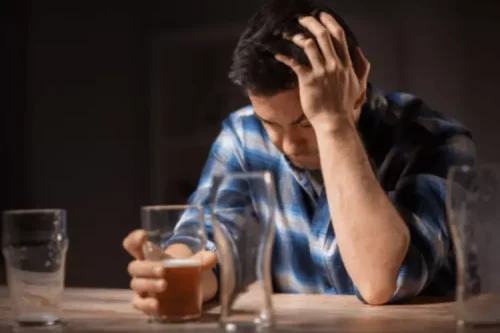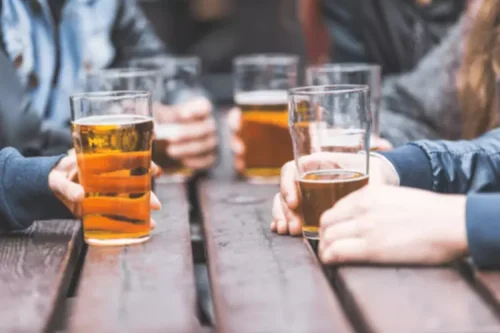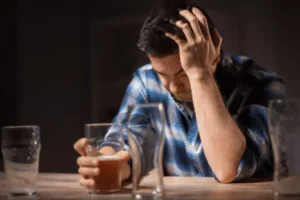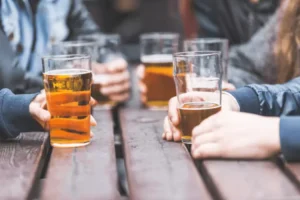- Rajkul Sr. Sec. School
- (+91) 9992163563
- (+91) 7056550777
- rajkulschool@gmail.com
How to Deal with Alcohol Cravings: 16 Effective Ways to Beat Your Cravings Plus CMT Vs MBRP
What is Product Management, why is it needed? Product Focus
September 27, 2022Genetics and Alcoholism: Whats the Connection?
January 30, 2023How to Deal with Alcohol Cravings: 16 Effective Ways to Beat Your Cravings Plus CMT Vs MBRP

That’s when the “drinking habit” begins to form, as the brain is now accustomed to the fact that drinking automatically means a positive feeling takes over. https://ecosoberhouse.com/ The primary reason behind alcohol craving is dopamine; a neurotransmitter that plays a major role in mediating positive emotions like pleasure, motivation, and success. Protein-rich foods, like lean meat, poultry, fish, and eggs, can keep you feeling full and satisfied, making you less likely to reach for alcohol. Additionally, these foods also supply the amino acids necessary for brain health and balance. While general guidelines can be helpful, it is important to remember that everyone’s dietary needs may vary.
- These desires can emerge due to various triggers, both external and internal, making it crucial to understand their nature.
- If you typically socialize with friends over drinks, try scheduling activities that don’t involve alcohol instead.
- If you’re attempting to help someone who has alcohol addiction, approach them with compassion and understanding.
- If you have a dependence on alcohol and want to stop drinking, you can talk to your doctor about getting a prescription for Acamprosate.
Learn How to Stop Alcohol Cravings with Avenues Recovery

For most people, their cravings are a combination of these two reasons. Learning more about the science behind cravings can help you better understand how to reduce alcohol cravings your experience and what to expect in the alcohol recovery timeline. Do yourself a favour, learn about the damaging effects of drinking alcohol every day. But often, by the time we find out about the danger, it is too late to do anything about it. Your brain has an incredible capacity to grow and learn – so feed it!

Cognitive Behavioral Therapy (CBT) Vs Mindfulness-Based Relapse Prevention (MBRP)
But did you know your diet can play a significant heroin addiction role in curbing alcohol cravings? Going through recovery after drug or alcohol abuse can be challenging, especially when your body is trying to adapt to your new lifestyle. But leading a sober, healthy, vice-free life doesn’t have to be hard. It all comes down to making the right decisions on a daily basis and resisting the urges and cravings. When you go through alcohol withdrawals, your body and mind work together to adjust to the changes. It takes time and patience, but if you’re determined, you’re guaranteed to succeed.

Foods That Can Help Curb Alcohol Cravings
Vow to keep ultimately searching for stimulation outside of those destructive habits centered on drinking alcohol every day. Alcohol cravings can be a sign of withdrawal, especially if you have an alcohol dependency. They tend to occur alongside other withdrawal symptoms such as anxiety, irritability and physical discomfort. However, if your cravings are frequent, intense or uncontrollable, they might indicate alcohol addiction.
The Role of Accountability in Long-Term Sobriety

It’s characterized by symptoms such as cravings, sweating, fever, and more severe symptoms like hallucinations or seizures. That’s why it’s vital you speak with a physician before you quit alcohol or cut back significantly to determine if supervised detox is necessary. No matter how good the alcohol made us feel, or how much stress and anxiety seemed to go away, it always comes back with a vengeance.
- Once you experience the urge, distract yourself with something that takes your attention.
- We need to recognize not just the feeling of the craving for more alcohol, but also the reasons that we react the way we do.
- You’ll get access to a personalized treatment plan and provide helpful resources to help you start on your recovery journey today.
- Research has shown that continuing care is an important component of effective treatment for substance use disorders, especially for those individuals with severe cases.
- Just as different things can trigger alcohol cravings from person to person, different strategies can help you manage them.
